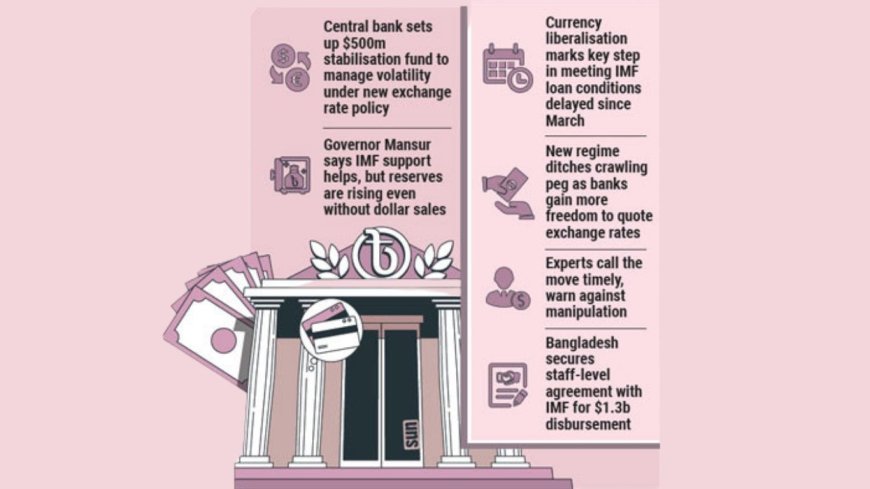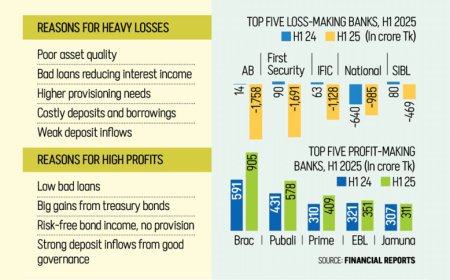$3.5b in Foreign Loans Expected by June as Bangladesh Bank Backs Market-Driven Exchange Rate
BB Governor Expects $1.3b from IMF, Plus $2.22b from WB, ADB, JICA, AIIB, and OPEC Fund

Bangladesh is set to receive $3.5 billion in external loans by June as the central bank transitions to a market-driven exchange rate system aimed at bolstering investor confidence and easing pressure on foreign reserves.
Key multilateral lenders—including the World Bank, Asian Development Bank, and International Monetary Fund—are backing the funding, Bangladesh Bank Governor Ahsan H Mansur announced Wednesday. Of the total, $1.3 billion will come from the IMF as part of a $4.7 billion loan package approved in early 2023. Although the disbursement was initially scheduled for March, it was delayed over concerns about Bangladesh’s slow pace in unifying its exchange rates.
At a virtual press briefing, Mansur confirmed the central bank’s shift to a market-based regime, marking a clear departure from the previous partially flexible model. “The time has come to let the market determine the dollar rate,” he said, adding that while the market will take the lead, the central bank will intervene if needed to maintain stability.
To manage potential volatility, Bangladesh Bank will set up a $500 million stabilization fund. Under the new system, banks will set rates based on supply and demand within a flexible band, likely to widen from the current 2.5% to 4–5%. Though the central bank will stop publishing the band, it will continue to monitor market behavior.
Mansur emphasized that dollar supply is stable and warned against misinformation or panic. Notably, the central bank has refrained from selling US dollars for the past nine months, during which reserves have gradually improved and speculative pressure on the currency has eased.
While Bangladesh can manage without IMF financing, Mansur acknowledged that the funds would help strengthen the country’s balance of payments. A staff-level agreement with the IMF has been reached, with board approval expected in June.
IMF official Chris Papageorgiou confirmed the agreement, noting that it followed discussions in Dhaka, the IMF-World Bank Spring Meetings in Washington, and follow-up virtual talks. The disbursement is contingent on the central bank’s formal adoption of the market-based regime—a key loan condition.
The upcoming $1.3 billion includes SDR 650.5 million (about $874 million) under the Extended Credit Facility and Extended Fund Facility, and SDR 333.3 million (around $448 million) under the Resilience and Sustainability Facility. Bangladesh has also requested an additional SDR 567.2 million (roughly $762 million), which would bring total IMF support to approximately $5.4 billion.
Continued disbursements depend on progress in implementing reforms in fiscal policy, monetary governance, and climate resilience—areas the IMF views as crucial to long-term economic health.
The exchange rate shift has been welcomed by economists and bankers. Syed Mahbubur Rahman, CEO of Mutual Trust Bank, called it a timely move, warning that market discipline will be essential. Mohammad Abdur Razzaque, chair of the think tank RAPID, stressed the importance of meeting IMF conditions to maintain investor confidence and economic credibility.
What's Your Reaction?





















































































